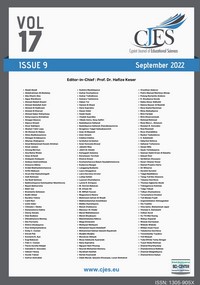Implementation of Moodle platform to acquire the students’ knowledge and science process skills
Implementation of Moodle platform to acquire the students’ knowledge and science process skills
Author(s): Irdalisa Irdalisa, Budhi Akbar, Gufron Amirullah, Tuti Marjan Fuadi, Mega Elvianasti, Luthpi SafahiSubject(s): School education, Educational Psychology, Pedagogy
Published by: Birlesik Dunya Yenilik Arastirma ve Yayincilik Merkezi
Keywords: Moodle; Teacher’s Guide; Students’ worksheets; Students’ Knowledge Dimension; Science Process Skills; Excretory System Concepts;
Summary/Abstract: Teachers are demanded to design learning tools to develop students’ learning motivation. Limited and monotonous learning models or tools have been a common reason for students’ lack of interest in learning. This study aims at describing the benefits of learning tools, especially the Teacher’s Guidebook and Students’ Worksheets developed through the Moodle platform. Both were used to support the learning activities to acquire the knowledge dimensions and Science Process Skills in the excretory system concepts. This study employed a one-group pretestposttest design. The population of this research was the eleventh-grade students in state senior high schools 13, Bekasi. It involved 102 students taken by the purposive sampling technique. The research instrument employed tests and observation sheets. Data analysis used paired sample ttest and quantitative descriptive. The results showed that the student learning activities using the developed worksheet in the Moodle platform could be categorised as “very active”. The acquisition of students’ knowledge dimensions increased after using the developed Teacher’s Guidebook and Students’ Worksheets or in the medium category. It also significantly improves the students’science process skills in the learning process. The improvement occurs in every aspect of science process skills, including observing, classifying, predicting, inferencing, hypothesising, interpreting data, planning experiments, and communicating.
Journal: Kıbrıslı Eğitim Bilimleri Dergisi
- Issue Year: 17/2022
- Issue No: 9
- Page Range: 3238-3247
- Page Count: 10
- Language: English

